|
| OO Scale | N Scale | G Scale | Z Scale | HO Scale | Slot Cars & R⁄C |
| |||||||
|
|||||||
| Home Page | |||||||
| BUY GIFT VOUCHERS | |||||||
| Products | |||||||
| Latest News | |||||||
| RIGHT LINES | |||||||
| Bargains | |||||||
| Downloads | |||||||
| Events | |||||||
| Careers & Jobs | |||||||
| Carriage Services | |||||||
| About Us | |||||||
| Contact Us | |||||||
| Pay Us A Visit | |||||||
| Meet The Staff | |||||||
| Links | |||||||
| SHOPPING BASKET |
Your shopping basket is empty. To add an item, click the "Buy" button
| YOUR ACCOUNT | ||
|
||||
 |
||||
| Prodigy Advance Digital System |
||||
| Cased Controllers |
||||
| Panel Mount Controllers |
||||
| Walkabout Controllers |
||||
| Modules & Transformers |
||||
| Scenics & Accessories |
||||
| Wiring & Electrical Components |
||||
| Tiny Signs | ||||
| Tools | ||||
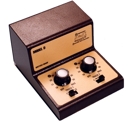 |
||||
| RECENTLY VIEWED |
| DA7F-042-040 - KFA Flat Wagon VNH-1 Bogies Tiphook Rail 93389 | ||
| PK57090A-3 - (S) Traction Tyres 4pcs | ||
| AL20005943 - Master 53' CMC Container Set (3) EMP Large Side Logo | ||
| ODAP007 - Austin Princess Late Black | ||
| PLSWELD - (PPC-2P) Plastic Weld Glue |
| O Scale | Wargaming | Architectural | Narrow Gauge | Tools+ | ||
My Favourite Railway Journey

IAN FOWLER tells us about his favourite journey by train.
The Devon town of Teignmouth is like a second home to my family and I, so although we usually drive when we are heading west, I make no apologies for choosing the clichéd route of Exeter St Davids to Newton Abbot as “My Favourite Railway Journey”.
I’m not referencing any other material, this is from the heart so some of the finer detail may be missing but I hope the atmosphere is recreated.
The route is served by Great Western Railway and CrossCountry trains and there are some freight trains operated by DB Cargo, Colas Rail and Freightliner.
This journey begins at Exeter St Davids, an impressive station with 6 platforms. Platforms 1 and 3 are interesting as trains come and go from all directions here – from London Waterloo/Exmouth to Barnstaple or Exeter St Davids/Paington by way of a reversal. Platform 2 is a lightly used bay platform used for terminating trains from the north while Platforms 4 and 5 and the up and down main lines for north and southbound trains. Platform 6 is used for terminating trains, not just local services but also some longer trains from either London Paddington or CrossCountry services.
The train veers right as it heads south and you might notice a branch line to your right that takes you to the Alphington Road metal processing facility that sees occasional freight traffic.
Exeter St Thomas is the first stop and one that has become busier over the years, as the city spreads outwards. I recall a rail served oil depot around here at one stage, but that is long gone. The service restarts and passes the industrial area of Marsh Barton where there are plans for a new station, but progress on this seems to have stopped for the time being.
It’s at this point, you begin to skirt the River Exe and can see Topsham and Exmouth on the other side of the river.
The next Stop is Starcross, a pretty village where you can take a ferry across to Exmouth should you so wish. It’s also home to the last surviving pumping station from Brunel’s Atmospheric Railway which is the former guise of the route we are taking today.
The train veers west at the mouth of the River Exe, passing the picturesque Cockwood Harbour as you approach Dawlish Warren, where two loops house the platforms allowing slower trains to be overtaken by expresses. Dawlish Warren is home to a lovely sandy beach and many large caravan parks so has been the start and end of many family holidays over the years. For the railway enthusiast, there are converted coaches available to hire for accommodation, right next to the GWR main line!
As the train approaches Dawlish, this is where the much loved sea wall section begins in earnest. The characteristic red sandstone cliffs are to your right while the railway skirts a stone pedestrian walkway and the seaside to your left. Dawlish station is literally on the seafront and there’s an attractive garden in the middle of the town and a plethora of amusement arcades, cafes and bucket and spade shops. It’s an excellent traditional British seaside resort.
A network of small tunnels takes you to the Teignmouth section of the wall where you emerge at Holcombe where the sea wall walk begins. There’s a small café here if you require sustenance if you decide to walk some of it (recommended!)
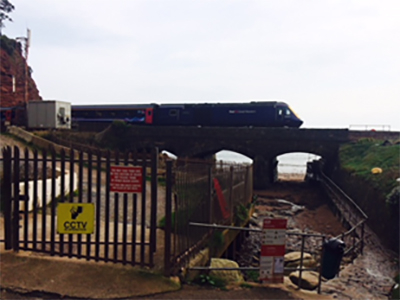
Looking south near Holcombe Tunnel.
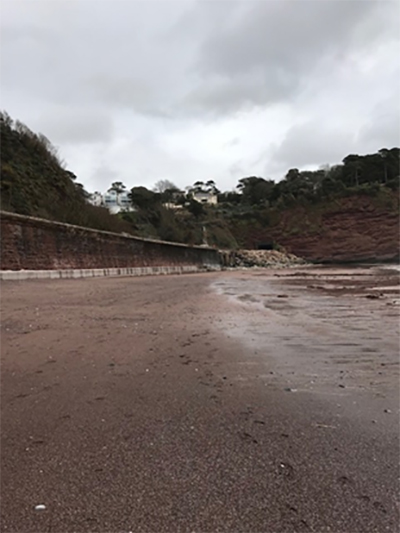
looking east towards Holcome tunnel.
The line hugs the beach until you reach a recess of land known as Sprey Point. This is an excellent place to take some photos and isn’t a bad spot to fish from as I’ve seen decent sized Bass and Mackerel caught here over the years. You’ll also see the iconic Teignmouth sign which welcomes visitors to the town.
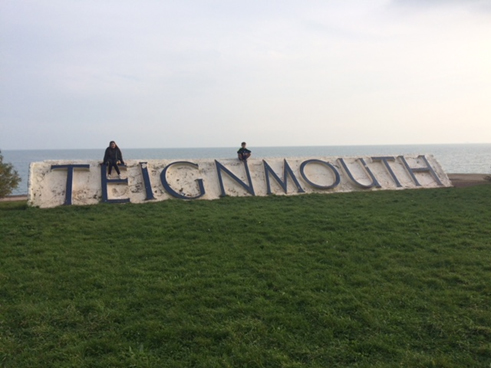
The Teignmouth sign, being guarded by a couple of reprobates.
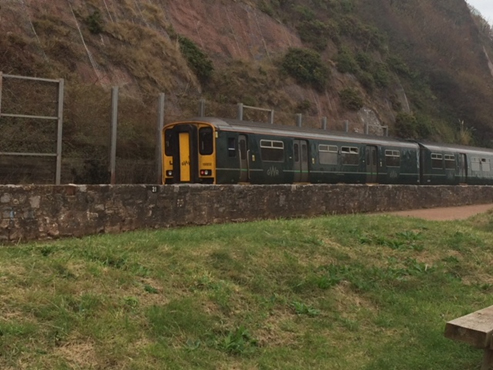
GWR Class 150/2.
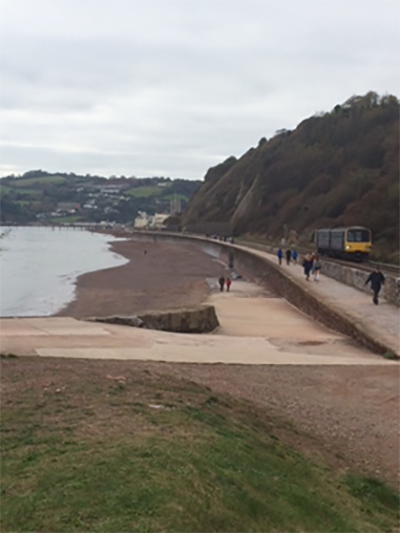
looking West from Sprey Point.
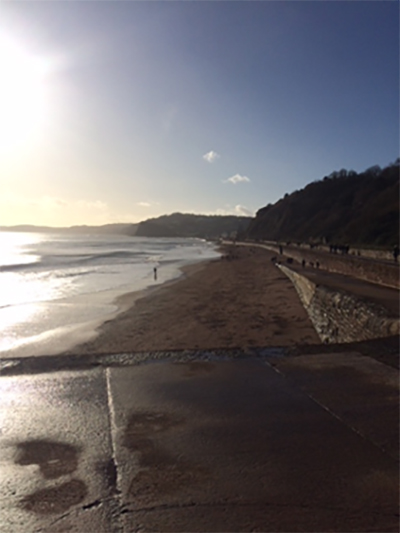
Looking westward from Sprey Point.
The route continues along a lovely reverse curve before diving under a truss bridge into Teignmouth station
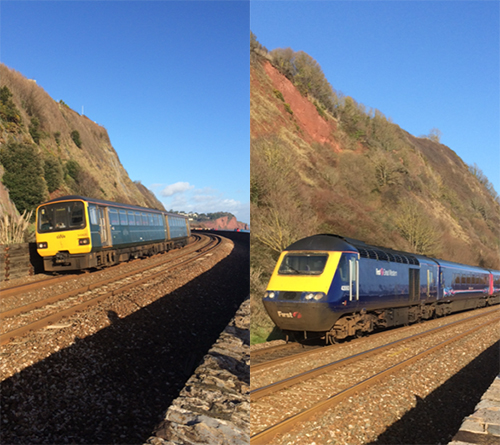
Class 143/HST action!
The route continues along a lovely reverse curve before diving under a truss bridge into Teignmouth station.
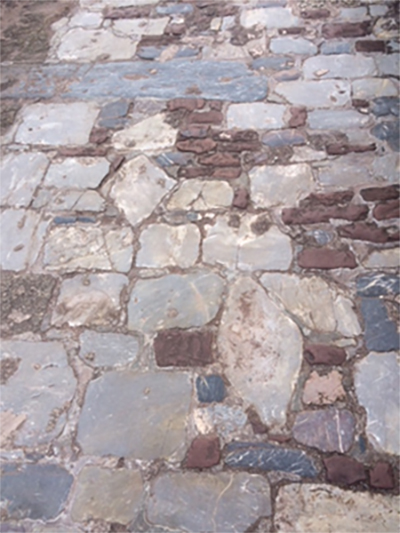
If you are walking it, do take the time to spot the two diagonal stones on the sea wall. No, I am not telling you where they are!
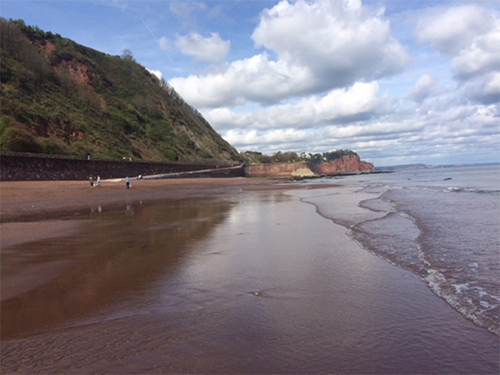
Looking towards Sprey Point from Teignmouth.
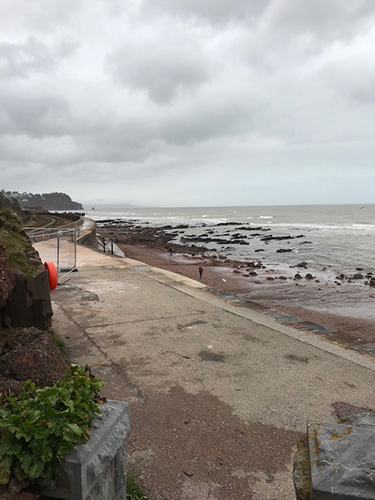
The Sea Wall from Teignmouth
From the pier, you get a good view of the entire sea wall and here are two contrasting pictures highlighting the very changeable weather
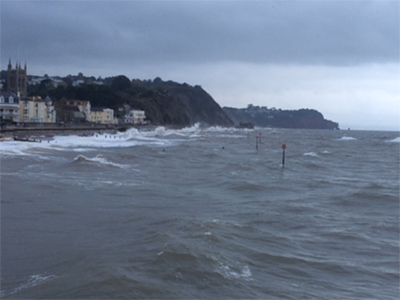
Usually the day we arrive.
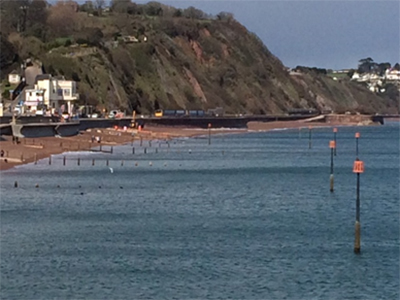
Usually the day we leave.
Teignmouth has an extremely long platform 1 and a much shorter platform 2. Behind platform 2 is the former goods yard. Teignmouth station is a handsome GWR stone structure and is well cared for with a ticket office and café on site.
From here, the railway runs in a cutting alongside the working docks, which get busier every year. You might notice the rugby club to your right and Shaldon bridge to your left. Shaldon Bridge has a liftable section which they check still works every few years. We were lucky enough to see it being lifted on one visit.
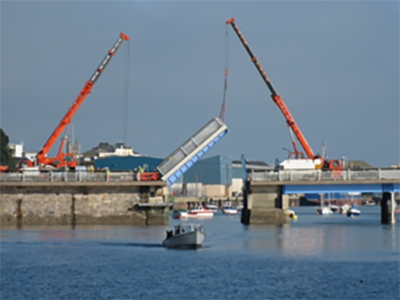
Still works!
The line skirts the River Teign, where the British Record Flounder was caught. In fact, so notable is the flounder fishing, there is a national competition held there every year.
You will also notice a Holiday Village to the south with amazing views of the river and the railway and the views continue all the way to Kingsteington as the train slows for its booked stop at Newton Abbot. You might notice the Heathfield branch line to your right – until recently there were timber trains using this branch line using Colas Rail traction.
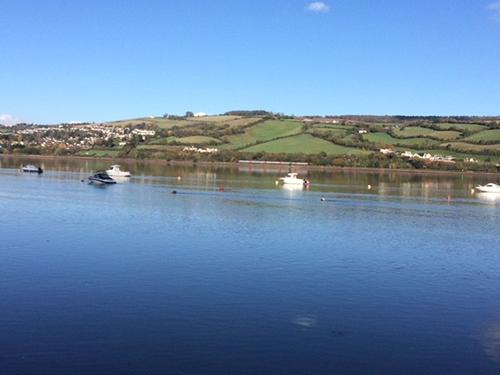
River Teign from the South side.
My favourite journey ends at Newton Abbot, which is still an important and imposing junction station where the Paignton line diverges.
Modelling the Dawlish Line
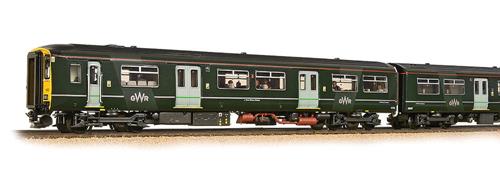
If you fancy modelling this line in modern times you might need the following DMUs – Class 143/150/153/221/222 as well as HSTs in FGW, GWR and XC liveries. To keep you right up to date, Class 800s and HST Castle (2+4 sets) have been introduced recently.
At time of press, Bachmann produce a OO Scale version of the Class 150 in GWR Livery, and a Graham Farish N Scale version in FGW livery. Dapol are planning various liveries of the HST, and Hornby are set to release it in OO Scale, including a unit in GWR livery. Hornby have also produced the Class 800 in GWR livery.

There are still some locomotives out and about, a regular top and tail DB Cargo Class 66 turn is the Westbury to Par RHTT, plus china clay from Cornwall (DB Cargo Class 66 hauled), cement to Moorswater (Colas Rail Class 70 hauled), Network Rail trains (Freightliner/DB Cargo Class 66s) and perhaps most pleasingly the Class 57 hauled sleepers. On summer Saturdays there is even a loco hauled turn utilising the Day coaches from the Night Sleeper running from Cornwall to Exeter St Davids and back which is Class 57 hauled. Of course, this scenic route also sees plenty of steam and diesel hauled excursions as well as the Belmond Pullman from time to time.
At time of press, Bachmann, Graham Farish, and Dapol all produce Class 66s in various older DB liveries. Bachmann and Graham Farish produce the Class 70 in Colas livery in OO and N respectively. Again, Bachmann, Graham Farish, and Dapol all have Class 66s in Freightliner livery on the books, and Bachmann are producing in OO Scale a Class 57 in GWR livery.
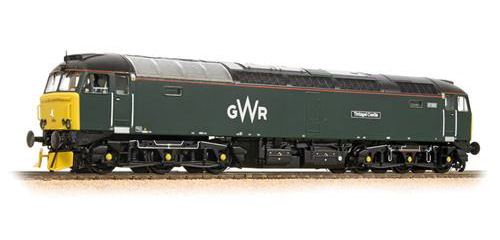
So there is still plenty of scope for modelling!
|
We are always looking to make improvements to our website to try and improve the quality of your visit. We would welcome your feedback and suggestions, so please do not hesitate to e-mail our webmaster with your comments. Alternatively call us on 01903 884488.
Home Cookies Privacy Statement Terms & Conditions Site Map Site Guide
WEEE Regulations Glossary Careers & Jobs
Tel – +44 (0) 1903 884488 Fax – +44 (0) 1903 884377 E-Mail us – click here
Gaugemaster.com is a trading name of Gaugemaster Controls Ltd.
Registered in England No. 2714470, Registered office:
Gaugemaster House, Ford Road
Arundel, West Sussex, BN18 0BN, United Kingdom
VAT Reg. No. 587 8089 71
Copyright © 2003-2014 Gaugemaster Controls Ltd. All Rights Reserved.
















